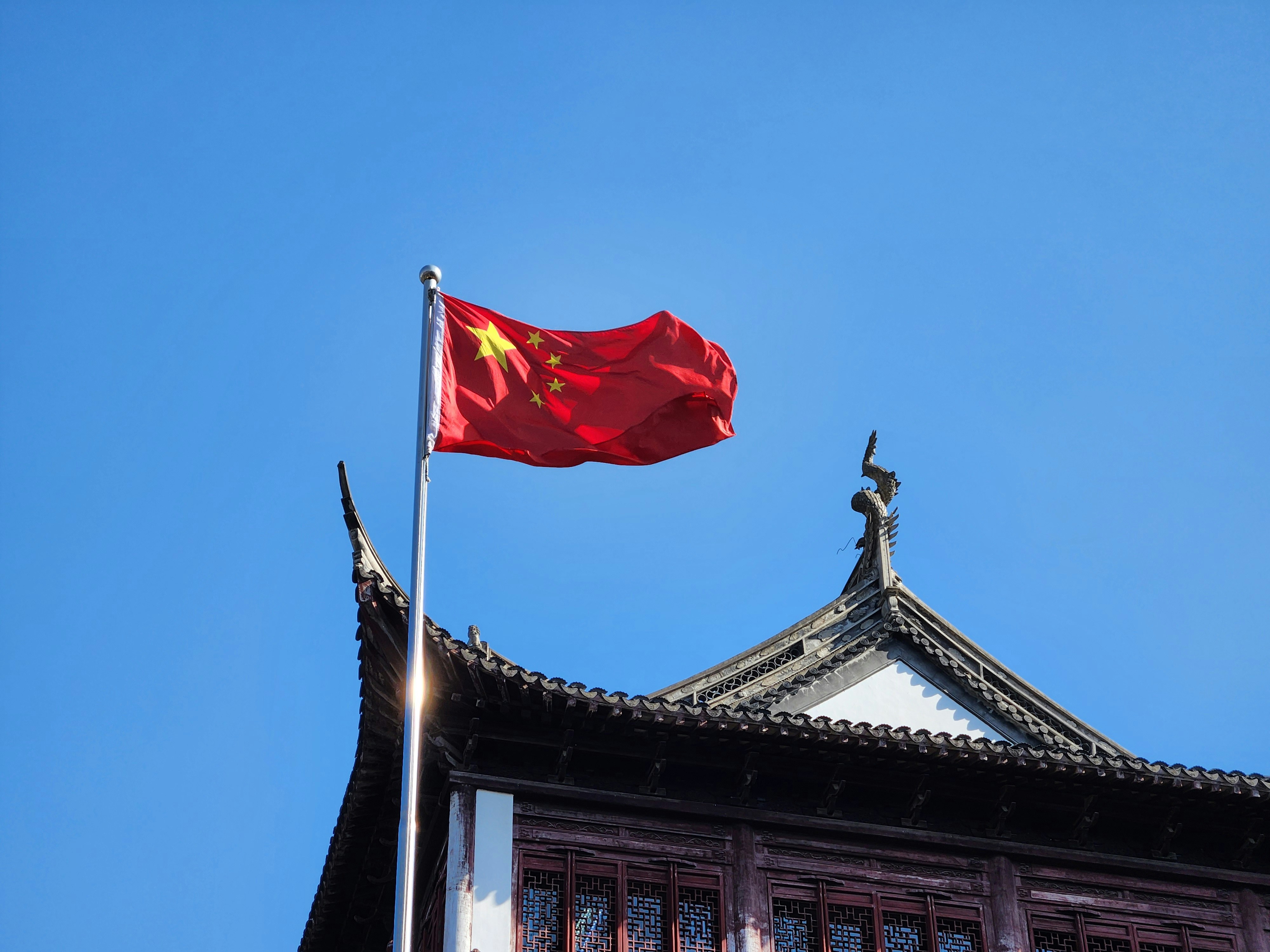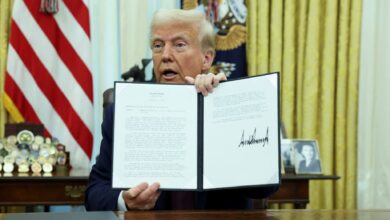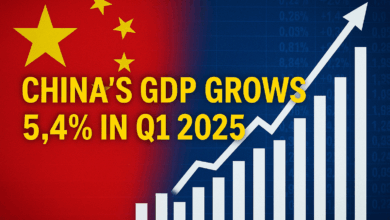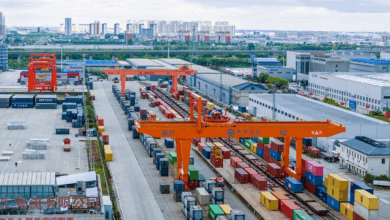China Firm on Trade Talks: No Deal with U.S. at Expense of Principles, Says MOFCOM

Beijing, (WE) — With a pivotal China-U.S. trade meeting imminent, the Chinese government is sending an unequivocal message: it will not compromise its national interests or principles to secure a deal with the United States. A spokesperson from the Ministry of Commerce of the People’s Republic of China (MOFCOM) reaffirmed Beijing’s stance on Thursday, warning that any agreement must be rooted in fairness, reciprocity, and respect for international norms.
“China will never agree to any deal reached through coercion or blackmail, and we will not sacrifice our principles or international fairness and justice,” said He Yadong, MOFCOM spokesperson, during a regular press briefing in Beijing.
The statement comes ahead of a high-level bilateral trade dialogue scheduled to take place in Switzerland from May 9 to 12. The meeting will feature Chinese Vice Premier He Lifeng, who also serves as a member of the Political Bureau of the Communist Party of China (CPC) Central Committee, and his U.S. counterpart, Treasury Secretary Scott Bessent.
U.S. Mixed Messages and Chinese Warnings
The planned summit comes amid escalating tensions and contradictory signals from Washington. Former U.S. President Donald Trump on Wednesday claimed that China had initiated the upcoming talks, but insisted he would not roll back tariffs to bring Beijing to the table.
Meanwhile, a statement from the Chinese Embassy in Washington contradicted that assertion, clarifying that the U.S. had in fact initiated contact through “multiple channels” and requested the resumption of talks.
“After carefully assessing the U.S. messages, China agreed to hold discussions,” the embassy spokesperson stated. “But China will never accept a scenario where the U.S. says one thing and does another.”
He Yadong also pointed out the damaging global effects of the U.S. tariff policy. He urged Washington to “take real steps” to correct its actions, including lifting the unilateral tariffs that have disrupted supply chains and affected businesses worldwide.
China-U.S. Trade: Trade Talks in Switzerland – A Crucial Test
The upcoming discussions mark the first senior-level economic exchange between the two countries since the United States imposed steep reciprocal tariffs on Chinese imports. The Chinese side is expected to reiterate its position on China-U.S. trade while seeking to hold the U.S. accountable to global trade norms.
According to Xinhua News Agency, the Switzerland meeting will focus on critical issues such as tariff rollback, enforcement mechanisms, and restoring bilateral trade confidence.
Chinese analysts warn that progress in China-U.S. trade relations is unlikely unless the United States adopts a more cooperative tone. “Substantive dialogue cannot proceed unless the U.S. demonstrates genuine sincerity,” said Gao Lingyun, a researcher at the Chinese Academy of Social Sciences (CASS) in Beijing. “China’s stance is consistent—its core interests and commitment to international fairness are non-negotiable.”
U.S. Domestic Pressures and Strategic Calculations
Recent statements from U.S. leaders underscore the complexity of Washington’s position. On one hand, Secretary Bessent hinted at tariff exemptions for child safety products such as baby strollers, cribs, and car seats—potentially signaling a softening stance. On the other hand, Trump has maintained a hardline posture, asserting in an NBC News interview that tariffs would stay in place indefinitely.
“At some point, I’ll lower them because otherwise you could never do business with them,” Trump said, without offering specifics.
This back-and-forth rhetoric reflects deep internal divisions within the U.S. administration, said Song Guoyou, Deputy Director of the Center for American Studies at Fudan University. Song noted that the inconsistent messages damage U.S. credibility and hinder meaningful progress in the trade relationship.
“Political grandstanding will not solve the U.S.’ domestic economic challenges. It only weakens their negotiating position,” Song added.
Read More:
- China’s Q1 2025 GDP Expands 5.4% Amid Trade Tensions and Domestic Challenges
- Cambodia Seeks China’s Financial Backing as Xi Visits Amid U.S. Tariff Tensions
- U.S. Tariffs on Chinese Goods Create Opportunities for Thai Exports and Industries
Business Sector Eyes a Temporary Reprieve
Within the U.S. business community, there is cautious optimism. Industry leaders hope the talks will produce a short-term reprieve from tariffs that have inflated costs and disrupted global trade flows.
Sean Stein, President of the U.S.-China Business Council, told Bloomberg that the most realistic outcome may be a 90-day pause in new tariffs while both sides engage in more in-depth negotiations.
“There’s hope for progress, but we shouldn’t expect a breakthrough,” said Stein. “Both sides are under significant domestic and geopolitical pressures.”
European Commission Adds Pressure on U.S.
Complicating Washington’s calculus further, the European Commission on Thursday launched a public consultation targeting U.S. imports worth €95 billion (approximately $107.2 billion). If no agreement is reached, these retaliatory tariffs could be implemented later this year.
According to a statement released by Xinhua, the European Union’s move reflects broader global frustration with unilateral U.S. trade measures.
China’s Economic Momentum Strengthens Negotiating Hand
Beijing is entering the talks with renewed confidence, backed by solid economic indicators in early 2025. According to Xinhua, China’s GDP grew by 5.4 percent year-over-year in Q1 2025, buoyed by a shift toward domestic consumption and innovation-led growth.
During a recent meeting with officials from the Abu Dhabi Investment Authority, Vice Premier He Lifeng said that “societal confidence and market expectations are steadily rising,” thanks to ongoing structural reforms.
MOFCOM highlighted several policy initiatives, including targeted financial support for high-tech manufacturing, infrastructure modernization, and green energy development, as part of China’s broader strategy to sustain economic resilience and global competitiveness.
China’s Strategic Patience and Long-Term Vision
Despite the current turbulence, Chinese officials and scholars stress that Beijing is not desperate for a deal. Instead, the government is adopting a long-term view, focused on high-quality development and strengthening multilateral ties.
“China is responding to global uncertainty with firm policy direction and a clear commitment to fairness,” said Gao of CASS. “We will remain a key driver of global economic growth.”
MOFCOM reiterated its commitment to upholding the multilateral trading system and warned the U.S. not to mistake China’s patience for weakness.
“We urge the U.S. to respect global economic rules and engage in talks based on mutual respect and equality,” said He Yadong.
The Ball is in Washington’s Court
As the May 9–12 summit in Switzerland approaches, the international community will be watching closely. The outcome could shape the next phase of China-U.S. economic relations—and possibly global trade at large.
China has made its position unmistakably clear: it is open to dialogue but unwilling to be pressured or deceived. The question now is whether Washington will come to the table in good faith, or if it will continue its pattern of conflicting rhetoric and unilateral actions.
“Only sincere, rules-based dialogue can stabilize this vital relationship,” said Song of Fudan University. “Otherwise, China is fully prepared to protect its interests, no matter the cost.”
![Xi Jinping meets Cambodia’s PM Hun Manet at Peace Palace, Phnom Penh – April 17, 2025 [AKP/Reuters]](https://theworldseye.com/wp-content/uploads/2025/04/2025-04-17T120007Z_1791565247_RC2NZDAP58BL_RTRMADP_3_CHINA-SOUTHEAST-ASIA-CAMBODIA-1744896414-390x220.jpg)














